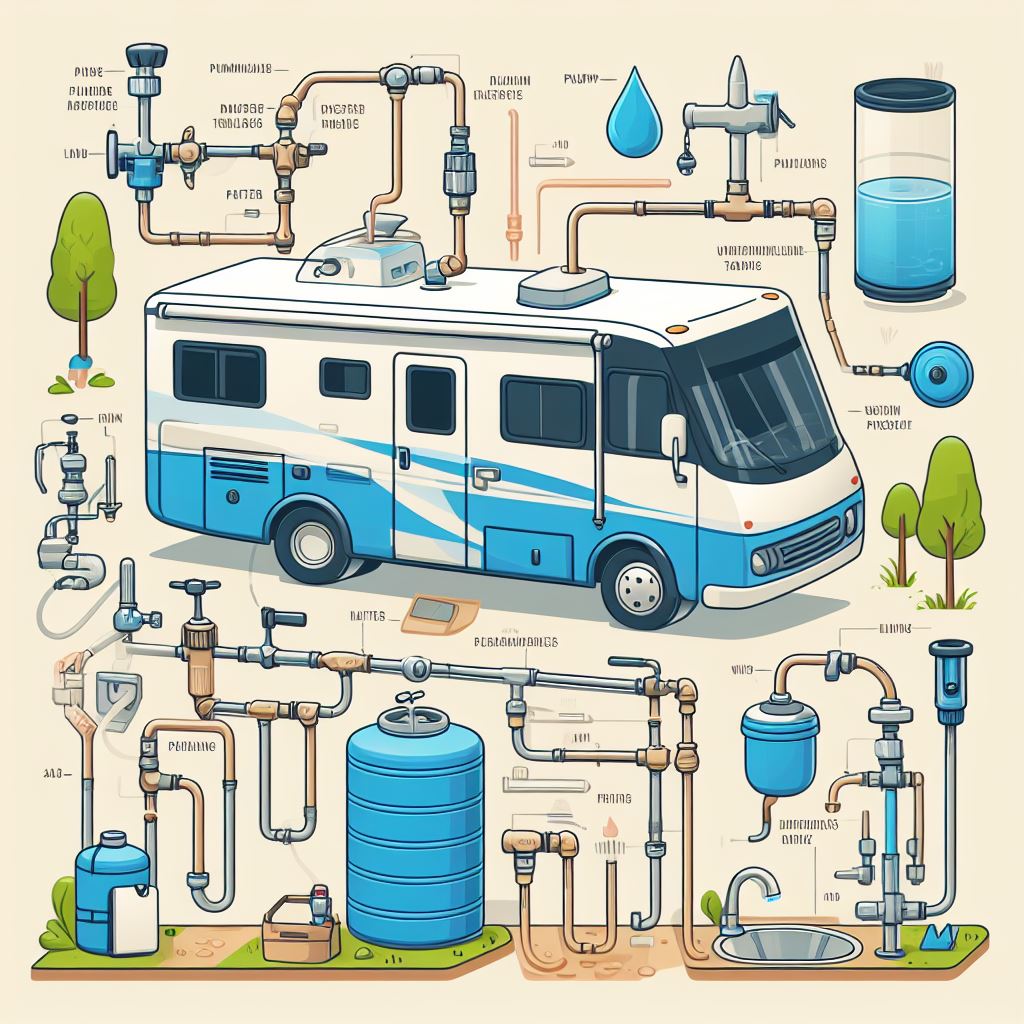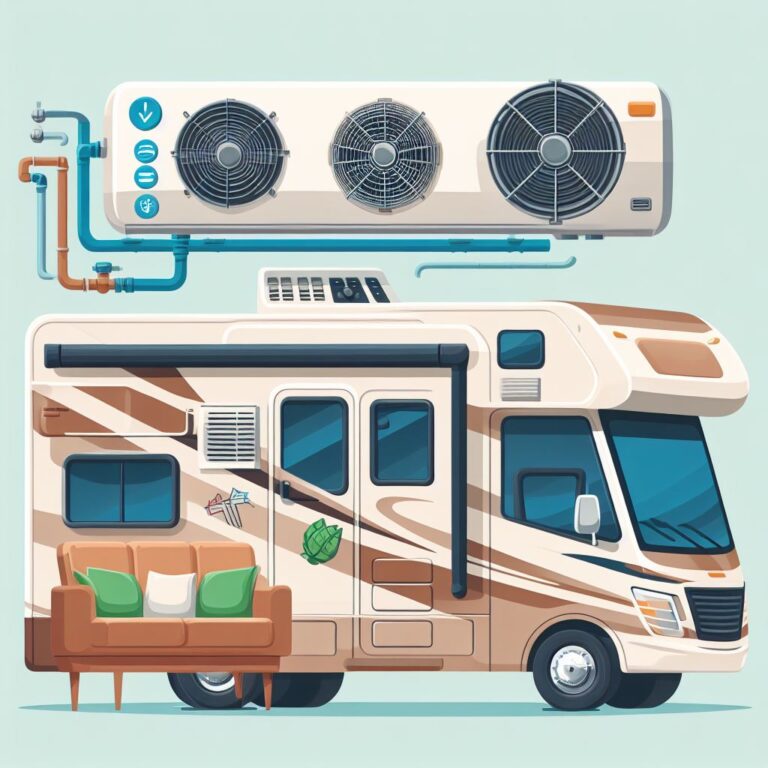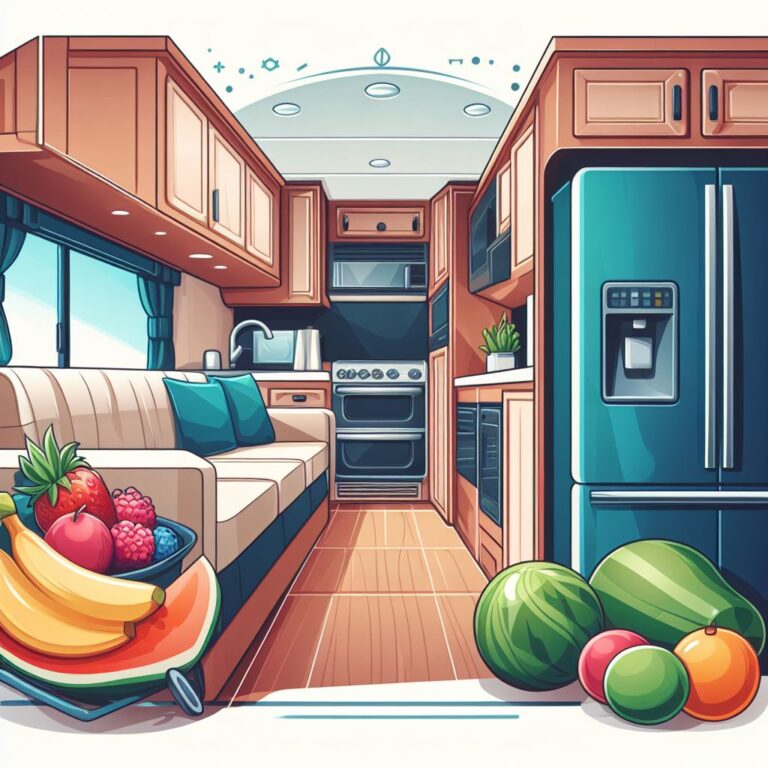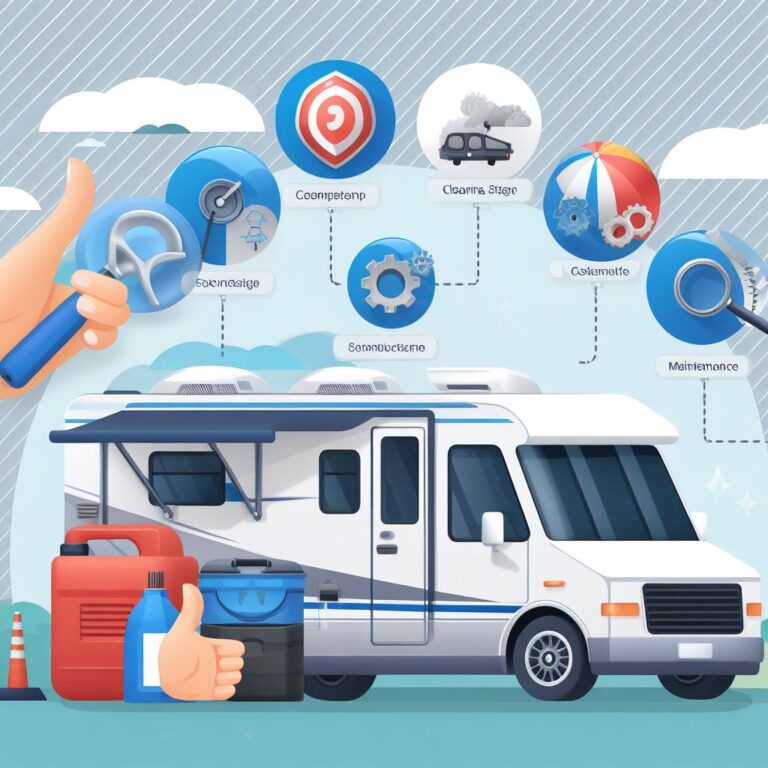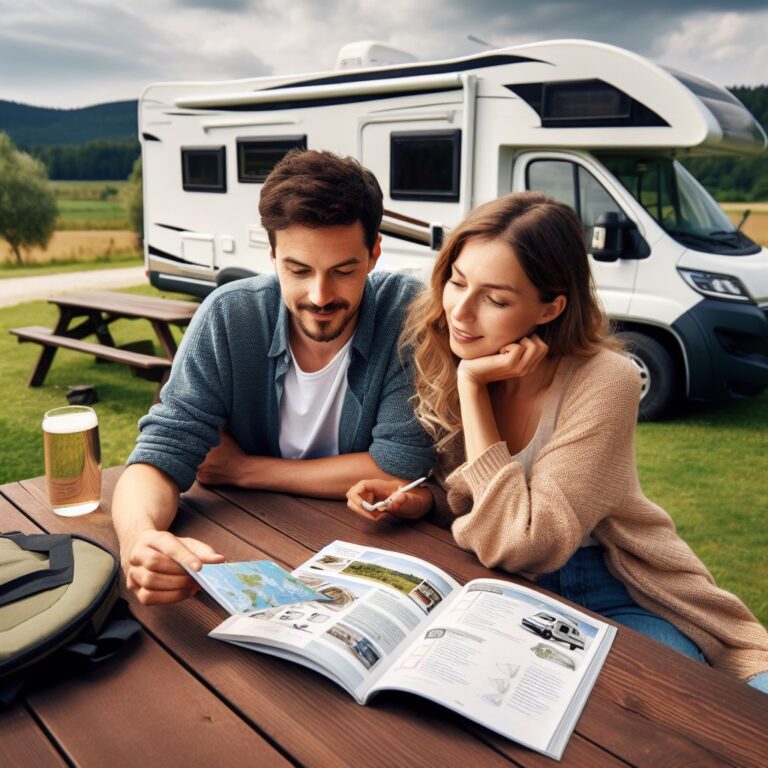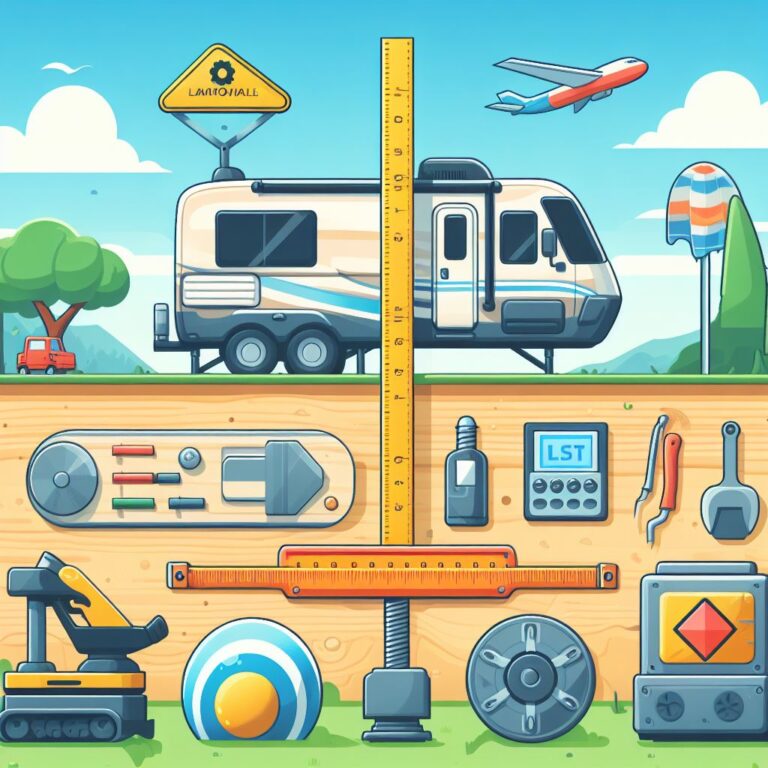How To Choose RV Plumbing
Understanding the Basics of RV Plumbing Systems
Recreational Vehicles (RVs) plumbing systems are a key component that requires adept understanding for optimal usage and longevity. It is the backbone of the vehicle’s interior, providing clean drinking water, enabling showers, dishwashing, and other essential amenities when touring around. Such systems share similarities with residential plumbing; however, they are explicitly designed to withstand the rigors of constant movement, various climatic conditions, and confined space constraints of an RV.
While tackling RV plumbing, two crucial elements come into play: fresh water system and the waste water system. The former ensures delivery of clean water from the RV’s water tank to the interior when city or portable water is not accessible. It does this through a 12-Volt pump that pushes water throughout the vehicle. On the other hand, the waste water system collects and stores wastewater from the kitchen sink, shower, and toilet in different tanks until disposal is possible. Therefore, understanding these basics can provide a solid foundation from which to navigate the world of RV plumbing.
Selecting the Right Materials for Your RV Plumbing
When embarking on an RV plumbing project, the choice of material is critical. The essential elements of RV plumbing systems are typically made from three primary materials: PVC (polyvinyl chloride), PEX (cross-linked polyethylene), and Copper. PVC is lightweight, affordable, and simple to work with, making it a popular choice among RV owners and professionals alike. PEX, on the other hand, is durable with a high degree of flexibility that allows it to withstand extreme temperatures and resist scale build-up and corrosion. Copper, while proven and durable, is less common in RV plumbing due to its higher cost and more complex installation process.
However, choosing the right material goes beyond merely selecting what’s available or most cost-effective. It’s also necessary to consider the specific demands of your RV plumbing system. For instance, if your RV adventures involve going to places with significantly fluctuating temperatures, PEX might be the better choice over PVC due to its high temperature tolerance. Moreover, if long-term durability and reliability are of utmost importance, investing in copper might be a wise decision, despite its higher cost. Therefore, understanding the advantages and disadvantages of each material and how they align with your particular needs is crucial for selecting the appropriate materials for your RV plumbing.
The Importance of Size and Weight in RV Plumbing
An RV’s size and weight greatly influence its plumbing system. These factors dictate the necessary specifications to ensure that the system works optimally. Selecting the proper dimensions for your RV’s plumbing components, such as pipes, fixtures, and tanks, is vital to ensure a smooth flow of water and efficient waste disposal. Moreover, the RV’s weight capacity determines the size and heaviness of the equipment that can be installed, taking into account the need to balance both function and practicality.
On the road, maintaining the correct weight is crucial, not only for efficiency but also for safety. Too heavy a load can lead to various issues like tire blowout, poor fuel mileage or even difficulty in maneuvering the RV. Therefore, the materials and products chosen for the RV plumbing system should be as lightweight as possible without compromising their quality and durability. Deciding on the right size and weight of your RV’s plumbing components implies a careful balance between the convenience of having full-scale components and the need to limit the weight of your vehicle for safety reasons.
Considering the RV Plumbing Layout and Design
The design and layout of an RV’s plumbing system is far more than just a matter of aesthetics or personal preference. It speaks to the core functionality of the vehicle and directly impacts the comfort and convenience of occupants. From the placement of the bathroom and kitchen fixtures to the size and shape of the pipes and positioning of the water tanks, each element plays its part in ensuring a smooth and efficient plumbing system.
Important considerations include the location of waste and fresh water tanks, which depends on the balance and weight distribution to prevent tipping or imbalance while the RV is in motion. Good design also minimizes the chances of issues such as water hammer and pipe bursts in cold weather. Ultimately, a well-designed RV plumbing layout takes into account future repair and maintenance and the unique challenges that come with mobile plumbing systems, ensuring a journey filled with joy instead of plumbing woes.
Factors to Consider in Choosing RV Plumbing Fixtures
When deciding on plumbing fixtures for your recreational vehicle (RV), there are several key considerations that shouldn’t go unnoticed. Firstly, the type of material used to construct these fixtures is crucial. Most RV plumbing fixtures are made from lightweight materials such as plastic, brass or stainless steel. The choice here often comes down to a balance between durability, cost and weight. For instance, while plastic fixtures tend to be more reasonably priced and light, they may not offer the durability of their metal counterparts.
Aside from the material, another essential factor is the size of the fixtures. This is chiefly dependent on the available space in the RV. Compact fixtures might be the ideal choice for smaller RV models where space is at a premium. At the same time, the functionality of the fixtures is important. Therefore, ensure the fixtures you choose have the capacity to adequately serve your water supply and waste disposal needs. Lastly, the design of the fixtures also plays an important role, as they should complement the overall aesthetics of your RV’s interior.
The Role of Water Pressure in RV Plumbing Selection
Water pressure plays a significant role in the efficiency and functionality of an RV plumbing system. The ability to maintain steady and reliable pressure contributes to the general comfort and ease of use when operating the faucets, shower, and toilet in an RV. It significantly affects how well the system can distribute water, directly impacting the performance of the plumbing fixtures. A well-designed RV plumbing system should, therefore, provide adequate water pressure that matches the appliance requirements without being too high to avoid damage.
However, maintaining the correct water pressure in an RV can sometimes be challenging. This is mainly due to the varying water pressures at different campsites, which depend on their water supply systems. Hence, when choosing RV plumbing materials and fixtures, it’s important to take into account these variations. High-quality pressure regulating valves and fixtures designed to handle a range of water pressures can aid in managing this variability. They help reduce the pressure from the inlet when it’s too high, and ensure proper functioning of your RV plumbing system under different water pressure conditions.
Importance of Water Filtration System in RV Plumbing
The purity of the water utilized in an RV can drastically impact the entire plumbing system. Without a proper filtration system, impurities such as sediment, chlorine, iron, and other contaminants present in different water sources can cause havoc on the plumbing elements. These can lead to corrosion, clogging, and ultimately system failure over time. Hence, an RV water filtration system is of utmost importance, ensuring that only clean, filtered water circulates through the plumbing, drastically reducing the risks of such issues.
In an RV, the water filtration system not only protects the plumbing but also ensures quality water for consumption and usage. Whether it’s for cooking, bathing, or washing dishes, filtered water enhances personal comfort and hygiene levels. Some high-grade filters can even remove bacteria and viruses, providing an added layer of safety for the RV occupants. Therefore, incorporating a comprehensive water filtration system into the RV plumbing design holds both maintenance and lifestyle benefits.
Benefits of Having an Efficient RV Plumbing System
An efficient RV plumbing system brings several benefits to the table providing convenience, comfort, but most importantly, longevity to your mobile home’s facilities. Efficiency in RV plumbing means less use of resources, lower maintenance costs, superior performance, and ultimately, an elevated RVing experience. Investing in high-quality equipment and proper installation can lead to lesser chances of leaks and damage, thus preventing unnecessary expenses for repairs, replacements, or fixes.
Furthermore, an efficient system ensures reliable supply of clean water, and effective drainage and sewage disposal, all of which are significant for comfortable and hygienic RV living. It also improves water pressure, which can greatly enhance daily tasks such as showering, washing, and cooking. With a well-functioning and efficient plumbing system in your RV, you can enjoy problem-free journeys on the road, feeling assured that your facilities are operating smoothly and making your trips more enjoyable.
Maintenance Tips for Your RV Plumbing System
Regular care of your RV plumbing system is crucial for maintaining its functionality and extends its lifespan. This involves a series of tasks, from the simple ones like checking for loose fittings, leaks, and regularly draining the tanks, to a little complex ones which may require professional assistance. These include assessing the water pump for operation, checking the water heater burner assembly for any signs of rust, debris or insect infestation. It’s also advisable to clean the water heater tank periodically to eliminate any deposits and improve its efficiency.
One key task that should not be neglected is winterizing your RV plumbing system. As temperatures drop, the water inside the pipes can freeze, leading to potential damage. By draining your system and using non-toxic RV antifreeze, you can effectively prevent freezing. Similarly, regular inspection of the sewage system, including the septic tank, grey and black water tanks is essential. They should be emptied and flushed regularly, which can prevent bad odors and stop the build-up of solid waste that can potentially block the system.
Dealing with Common RV Plumbing Issues
When it comes to RV plumbing issues, several common challenges stand out. Firstly, clogged pipes are a frequent bane for many RV owners, which can be caused by a number of things, such as food particles getting trapped in kitchen drains or the accumulation toilet paper in black water tanks. Similarly, leaks are a common occurrence, owing to excessive water pressure or simple wear and tear. If unattended, these leaks can lead to water damage and compromise the structural integrity of the RV.
Another issue RV owners often encounter is poor water pressure. This can either be a result of faulty plumbing fixtures or a problem with the campsite’s water supply. Additionally, odors from grey and black water tanks can present a rather uncomfortable experience. Without proper ventilation, these tanks can produce unpleasant smells that permeate the entire RV. Lastly, broken water heaters often create problems, especially during the colder seasons when hot water is in high demand. The causes for these issues can range from sediment buildup to malfunctioning electrical components. Regular maintenance and timely repair can prevent or mitigate these plumbing challenges.
What are the basics of RV plumbing systems that I should understand?
The basics of RV plumbing systems include the clean water system, the greywater system, and the blackwater system. These systems are responsible for the supply, drainage, and waste management within the RV.
What type of materials should I choose for my RV plumbing?
It’s important to choose materials that are durable and resistant to the harsh conditions that may be experienced in an RV. PVC pipes, brass fittings, and stainless steel fixtures are commonly used in RV plumbing.
How does size and weight matter in RV plumbing?
The size and weight of your plumbing fixtures and equipment can have a significant impact on fuel efficiency and maneuverability of your RV. Lightweight and compact fixtures are often the best choices.
Can you explain the importance of the RV plumbing layout and design?
A well-designed RV plumbing layout ensures efficient use of space and easy access for repairs and maintenance. It should also accommodate all necessary systems for clean water, waste water and sewage.
What factors should I consider when choosing RV plumbing fixtures?
When choosing RV plumbing fixtures, consider their durability, ease of use, water efficiency, size, weight, and compatibility with your existing systems.
How does water pressure affect my RV plumbing selection?
High water pressure can cause damage to your RV’s plumbing system. Therefore, it’s important to choose equipment that can handle the pressure levels in your RV, and to use a water pressure regulator if necessary.
Why is a water filtration system important in RV plumbing?
A water filtration system helps ensure the water used in your RV is clean and safe. It can protect your plumbing system from damage due to sediment and contaminants, and improve the taste and odor of your water.
What are the benefits of having an efficient RV plumbing system?
An efficient RV plumbing system can help save water, reduce waste, lower your maintenance costs, and enhance your overall RVing experience.
How can I maintain my RV plumbing system?
Regular inspections, cleaning and sanitizing the system, prompt repairs, and winterizing the system are some ways to maintain your RV plumbing.
What are some common RV plumbing issues and how can I deal with them?
Common RV plumbing issues include leaks, blockages, low water pressure, and faulty fixtures. These can be dealt with by regular checks, using appropriate tools for repairs, or seeking professional help if necessary.
- How To Choose TIPHOPE RV Accessories - February 10, 2024
- How To Choose Joinfworld RV Accessories - February 10, 2024
- How To Choose Conntek RV Accessories - February 9, 2024

